Can You Over Water Your Plants in the Desert ?
As most would expect, water is considered a precious resource in the desert. But, did you know that there are more plant problems caused due to over-watering then under-watering?
Believe it or not, it is true. Most people are surprised to hear that up to 70% of residential water usage goes to watering trees and plants in your landscape. This high percentage is because many homeowners over-water their trees and plants.

Beavertail Prickly Pear (Opuntia basilaris) and Globe Mallow (Sphaeralcea ambigua
During college, I was fortunate to intern at the City of Mesa Water Conservation Office. The lessons that I learned there would last a lifetime. Nowadays, when I visit clients to help them with their landscapes, over 90% of the time I find that their irrigation schedule is incorrect – they water too lightly and too often.
This results in shallow roots and salt build-up in and around the root zone. (If you have seen a white substance around your plants, there is a good chance that it is the salts from the soil. And just an FYI – just like high amounts of salt are not good for us; they are not good for plants either).
Overwatering will weaken your plants, especially during the summer since their roots are close to the surface where they become hot and dry out much more quickly.

Trailing Yellow Dot (Wedelia trilobata), Rain Lily (Zephyranthes candida), Desert Spoon (Dasylirion wheeleri)
It’s important to note that plants need to be watered deeply, which does two things. First, it causes the roots to grow deeper into the soil, where it is cooler and stays moister longer. Secondly, it helps to reduce the salts in the soil and keeps them away from the root zone.
Your plants do not need the same amount of irrigation all year. Plants follow the weather- the hotter it is, the more water they need and when temperatures dip, the less that they need. For example, I water my garden once every 20 days in the winter, (excluding grass and annuals), and it is healthy and looks great. If you only take one thing from this article, then please let it be this; CHANGE THE WATERING SCHEDULE ON YOUR IRRIGATION CONTROLLER SEASONALLY.

Now, you are probably asking “How do I know what schedule my plants and lawn should be on?” Well, the folks at Water Use It Wisely is coming to your rescue. They have excellent information for the homeowner on the proper irrigation schedule for your plants. You can view it here: Landscape Watering Guide.
This guide was made for people who reside in the Phoenix metropolitan area. However, people who live in dry climates everywhere will find useful information regarding irrigation, and you can also contact your local extension office for locally published materials. **Most cities have information for their residents regarding watering schedules for their local climate. You can also contact your local cooperative extension office who often have this information as well.
If you find that you have been over-watering your plants, make sure that when you switch to the correct irrigation schedule, that you gradually change the schedule so that your plants have a chance to adjust.

Make sure you have the correct irrigation schedule which lets you have healthier plants, a lower water bill, and helps conserve water.
**For those of you not familiar with drip irrigation. The primary way the southwest waters their plants. Water is brought to the plant by a series of plastic pipes, tubing & emitters. The emitters drip water slowly to the root zone of the plant, reducing runoff and allowing the water to permeate deeply into the soil, which saves water.

 Noelle Johnson, aka, 'AZ Plant Lady' is a author, horticulturist, and landscape consultant who helps people learn how to create, grow, and maintain beautiful desert gardens that thrive in a hot, dry climate. She does this through her consulting services, her online class Desert Gardening 101, and her monthly membership club, Through the Garden Gate. As she likes to tell desert-dwellers, "Gardening in the desert isn't hard, but it is different."
Noelle Johnson, aka, 'AZ Plant Lady' is a author, horticulturist, and landscape consultant who helps people learn how to create, grow, and maintain beautiful desert gardens that thrive in a hot, dry climate. She does this through her consulting services, her online class Desert Gardening 101, and her monthly membership club, Through the Garden Gate. As she likes to tell desert-dwellers, "Gardening in the desert isn't hard, but it is different."
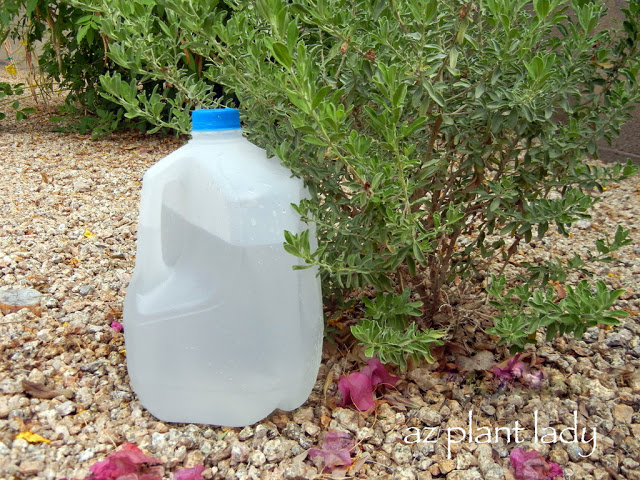
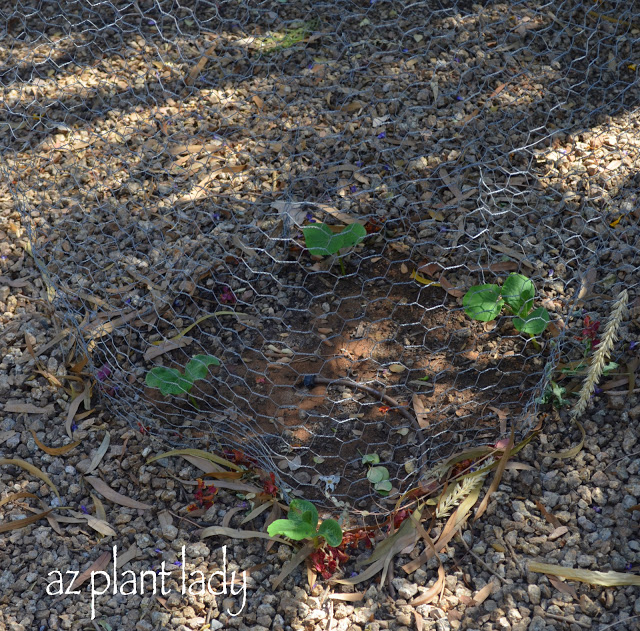
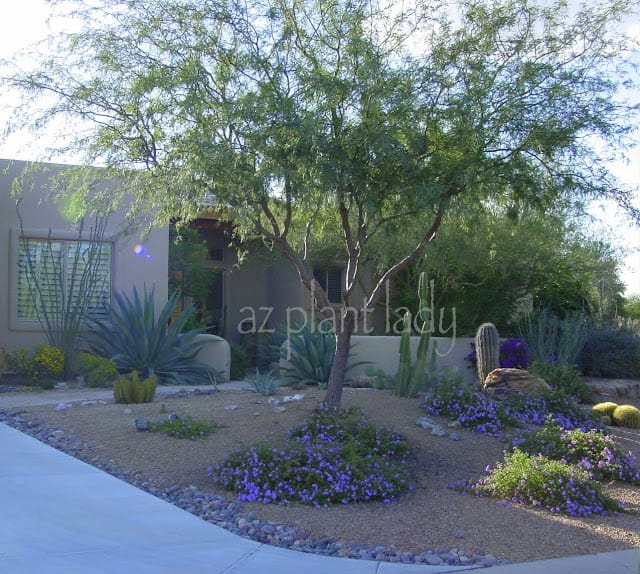

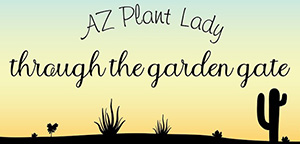



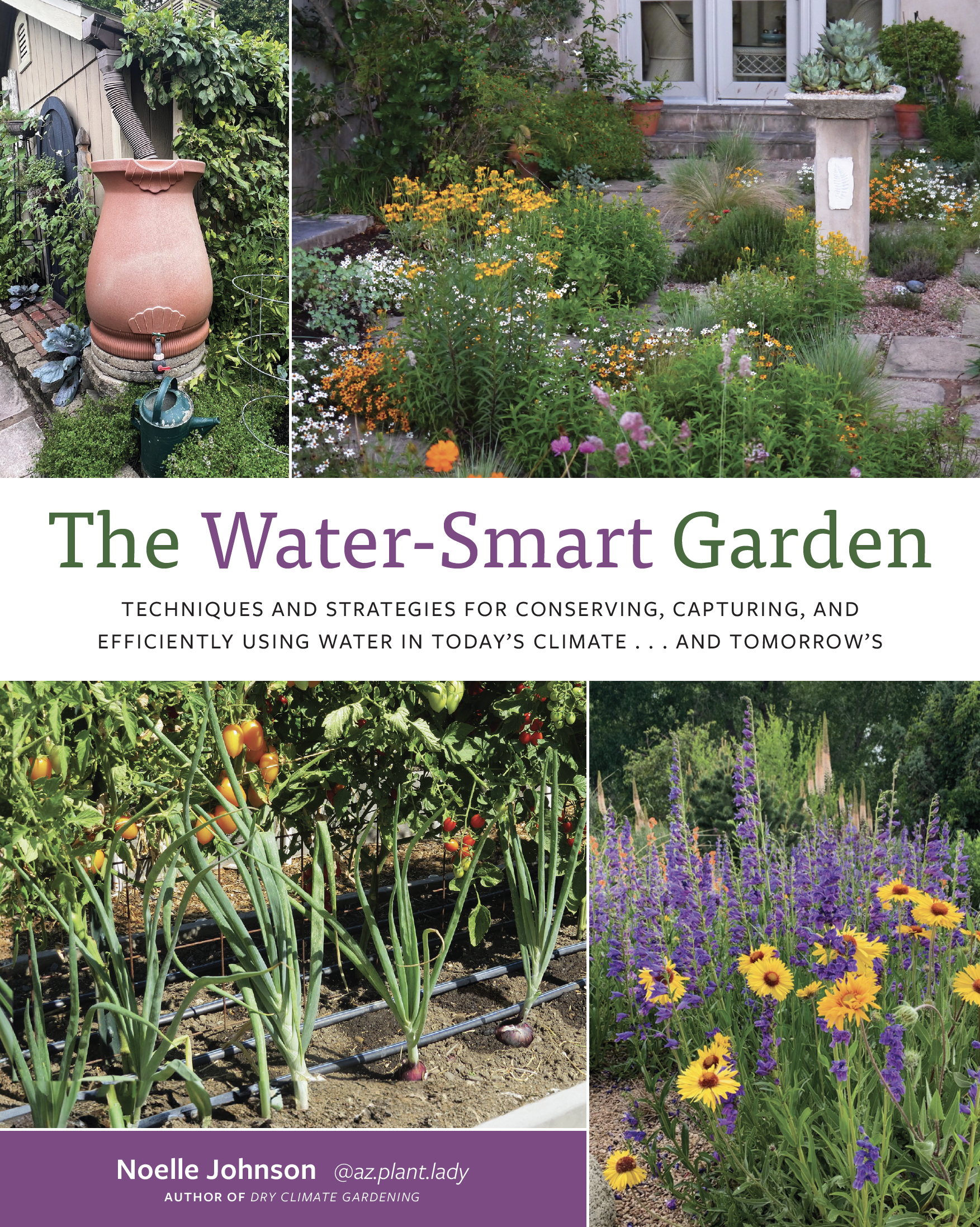
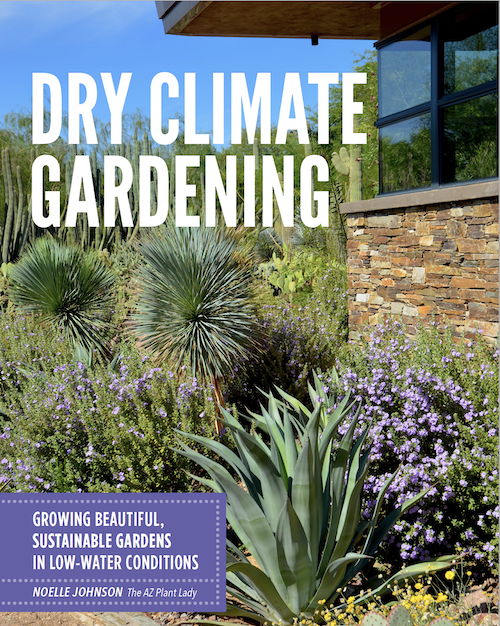


Noelle,
Best advice you could ever give people! Same goes with overwatering houseplants. Less is more.
Rosey
Great information Noelle, apropos for everywhere. In Nevada near Las Vegas is a great water management plant that has a cactus garden next to it. Great place to explore.
Great post, Noelle! I have seen some of the salt on my soil. I just had a class on rainwater harvesting and it was pretty interesting.
Excellent post, Noelle. I am always fretting about sprinkler systems that are set to run for 5 minutes, every night at midnight. And because they don't understand how to set the apparatus, they leave it where it was set by some unknowing person in the first place! Grrr…
We had to use 'city water' a bit this summer, because of the drought, and I was beginning to see salt buildup. We have a rainwater harvesting system, but it wasn't enough to outlast the drought.
Everything is much happier now, since we have had some good and regular rains.
Good info Noelle.Luckily with all the rain we have had I don't have to worry about watering for now and hopefully for a long time.
That orange Globe Mallow is a stunner. Where was the last picture taken?
Hello Everyone,
Thank you for your comments. I realize that this post is not super exciting, but I felt it was important to address.
SweetBay, the last photo was taken a block from my house. It is a little park with a playground.
azplantlady,
Very good post -I learned the hard way on house plants when I was young my Mom told me to always water my houseplants every Saturday so I wouldn't forget -after a couple of dead ones I finally realized I was overwatering them. Killing them with love. So now I make sure I test first.
vickie
I guess it is just a question of getting things right for each plant but that is the problem what is right for one may not be right for another a bit like life for us I suppose.